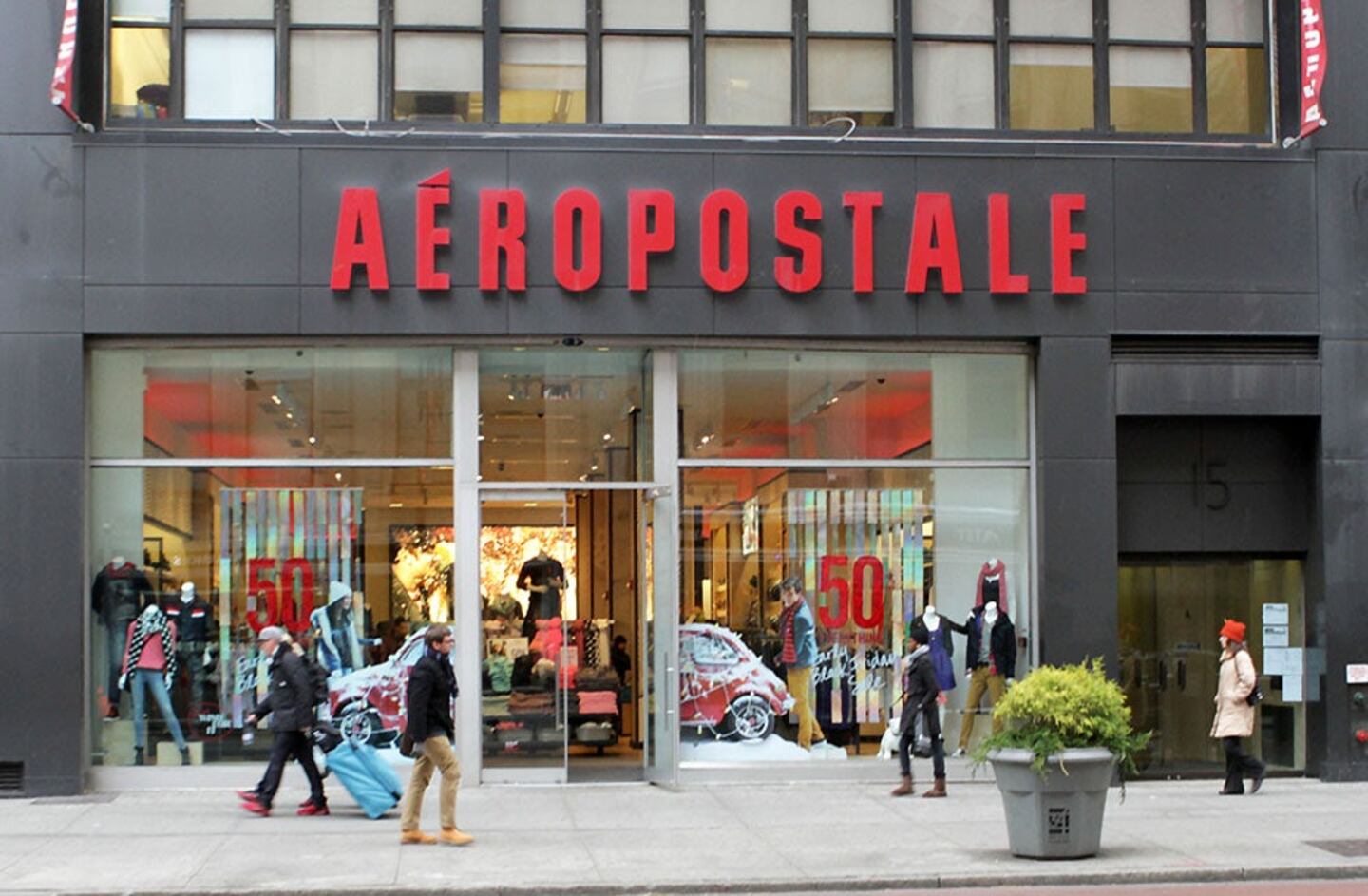
The Business of Fashion
Agenda-setting intelligence, analysis and advice for the global fashion community.

Agenda-setting intelligence, analysis and advice for the global fashion community.

NEW YORK, United States — When Sycamore Partners bought a big stake in Aeropostale Inc. in 2013 and then loaned it $150 million, the private equity firm was seen as a possible saviour for the teen- apparel chain.
Some investors figured that Sycamore would eventually acquire the rest of Aeropostale, helping redeem a stock that has been tumbling since 2010. As part of the 2014 agreement to lend Aeropostale money, the investment firm brought on two board members and created a strategic partnership with clothing supplier MGF Sourcing.
Two years later, that partnership is in tatters. Aeropostale is feuding with MGF, which is part of Sycamore, saying it’s disrupting its supply of merchandise. Sycamore’s directors, Stefan Kaluzny and Kent Kleeberger, have left the apparel company’s board. And Aeropostale is imploding. Its stock fell as much as 58 percent on Friday after the retailer posted a wider fourth-quarter loss and announced a plan to consider its strategic options.
“Exploration of strategic alternatives may spell the beginning of the end,” Eric Beder, an analyst at Wunderlich Securities Inc., said in a report. The only likely buyer for Aeropostale is Sycamore, but the vendor dispute signals that the two partners are headed for “a far more tenuous relationship,” he said.
ADVERTISEMENT
Aeropostale shares fell as low as 20 cents in New York, marking their biggest intraday plunge in more than 13 years. Even before Friday’s rout, the stock was down 84 percent over the past year.
Teen Shoppers
The company has lost favor with teen shoppers, and a broader decline in mall traffic has weighed on sales. Aeropostale’s net loss swelled to $21.7 million last quarter, from $13.5 million a year earlier. Sales fell 16 percent to $498 million, missing the $519.1 million predicted by analysts.
The dispute with MGF is adding to Aeropostale’s woes. When Sycamore helped connect the two companies, it was seen as a way to diversify Aeropostale’s clothing production. But the retailer said on Thursday that MGF is disrupting its supply of merchandise and violating the terms of their agreement. The problem could widen losses by $5 million to $8 million if shipping delays continue, Aeropostale said.
‘Hard to Interpret’
In response, MGF Sourcing said it’s not in violation of its contract with Aeropostale. The vendor is protecting itself by reducing its payment terms in accordance with their agreement, a representative said.
Sycamore’s motivations are “hard to interpret,” said Betty Chen, an analyst at Mizuho Securities.
“Either Sycamore is trying to minimize their exposure in the company, or they’re thinking more strategically longer term about how they want to be involved in Aeropostale,” she said.
ADVERTISEMENT
If Aeropostale ultimately files for bankruptcy, a buyer like Sycamore could acquire the retailer at a lower price. But Chen doesn’t believe such a move is imminent, especially since Aeropostale has a revolving credit line to draw on.
“Unless something dire happens, they have the financial viability, including the revolver, to operate through to 2017 and maybe 2018,” she said.
By: Lindsey Rupp; editors: Nick Turner and Kevin Orland.
From analysis of the global fashion and beauty industries to career and personal advice, BoF’s founder and CEO, Imran Amed, will be answering your questions on Sunday, February 18, 2024 during London Fashion Week.
The State of Fashion 2024 breaks down the 10 themes that will define the industry in the year ahead.
Imran Amed reviews the most important fashion stories of the year and shares his predictions on what this means for the industry in 2024.
After three days of inspiring talks, guests closed out BoF’s gathering for big thinkers with a black tie gala followed by an intimate performance from Rita Ora — guest starring Billy Porter.